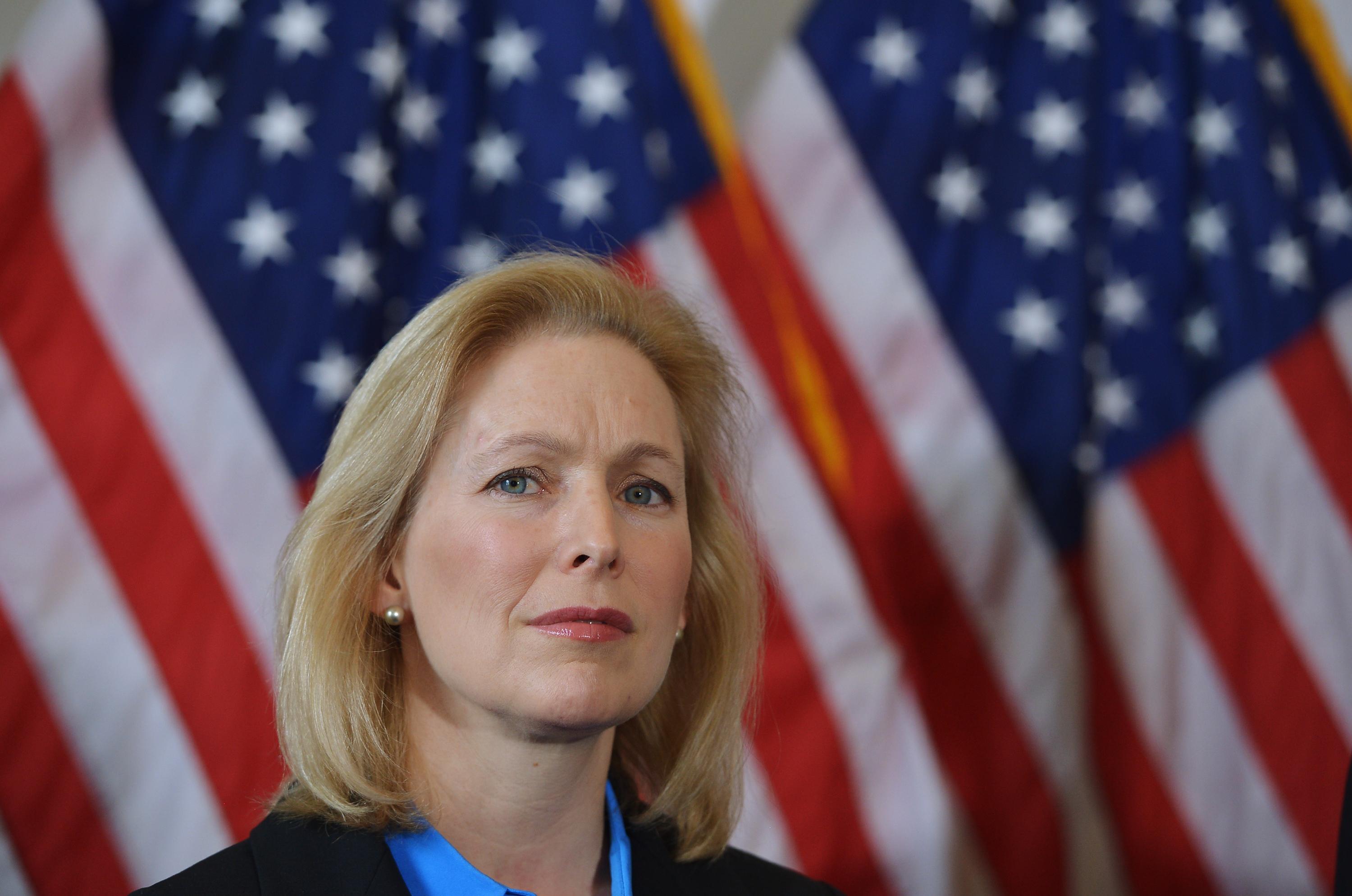After months of hard campaigning, Sen. Kirsten Gillibrand failed on Thursday to pass her legislation addressing sexual assault in the military, the Military Justice Improvement Act, through the Senate. The bill needed 60 votes to get past the filibuster, and it fell short at only 55. The Senate voted to move forward with Sen. Claire McCaskill’s competing bill, the Victims Protection Act, which is expected to pass easily when it comes to a vote. Both bills are crafted to make it easier for victims of sexual violence in the military to report their assaults with the assurance that they will be handled responsibly, but Gillibrand’s bill is more far-reaching, ending a commander’s authority to decide whether to prosecute an alleged crime and instead employing an independent military prosecutor to make that determination.
What made the fight over these two bills fascinating—and headache-inducing—is it defied the usual hyperpartisan atmosphere that rules Congress these days. Not only did some of the most heated opposition to Gillibrand’s proposal come from Democrats, including Obama, but she also managed to pick up some surprising Republican supporters, including Sen. Ted Cruz and Sen. Rand Paul. The battle also defied any easy narrative. Supporters of Gillibrand’s bill and supporters of McCaskill’s bill both consider sexual assault in the military to be a serious problem that requires extensive intervention—Gillibrand and McCaskill have worked together to pass a series of bills addressing the issue in the past—but there’s a legitimate dispute over whether automatically turning every case over to an independent prosecutor is the best way to get justice for victims. Unfortunately, there’s no cut-and-dry answer to that question.
Richard Oppel at the New York Times reviewed the arguments for both bills in a piece on Sunday. Gillibrand’s supporters argue that keeping rape prosecution in the chain of command opens the door to corruption. Commanders are likely to know the accused well—or, in some cases, they are the accused—and may have an inclination to sweep the charges under the rug, even if they have strong reason to believe the accused is guilty. McCaskill’s supporters counter by pointing out cases where prosecutors decided to drop serious charges against accused rapists in favor of lesser charges, suggesting that a victim’s chances of getting justice isn’t any better in the hands of an independent prosecutor. That hasn’t deterred Gillibrand’s supporters, however, who say that the absolute number of prosecutions isn’t the issue so much as giving victims reassurance that a third party with no pre-existing loyalties to either the victim or the accused will be the person handling the case.
Then there’s the matter of practicality. While independent prosecutors are easy enough to handle when the accusations are made stateside, if someone is raped in a war zone, it is simply much more practical to have the commander on the ground making the decision of how to handle the situation. Some pragmatism has to be sacrificed in interest of justice, of course, which is why both Gillibrand and McCaskill support assigning accusers independent counsel, but Gillibrand’s opponents question whether or not it’s worth making the process that much harder for the military with no promise of getting more guilty offenders convicted.
While both bills have a lot to offer victims, including more direct assistance and more assurance that their charges will be taken seriously, in the end it seems that there just may not be a perfect policy solution to the problem of sexual assault in the military. As with the civilian world, the obstacles to getting justice for victims are more about culture than about the structure of the justice system: reflexive victim-blaming, the difficulties in distinguishing rape from consensual sex when there are no outside witnesses, and the myth that false rape accusations are more common than they are. Regardless of their differences, both McCaskill and Gillibrand have done a great service in keeping this debate in the public eye, which will go a long way toward changing the culture so that victims of sexual assault are taken more seriously by everyone.
